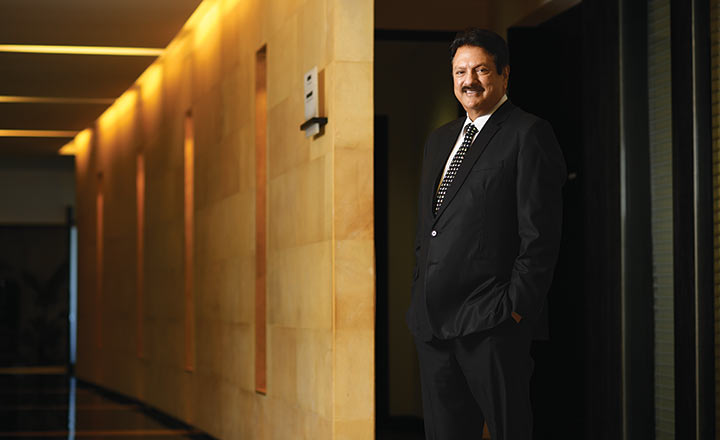Those days at Jamnalal were such fun. I loved everything — the classes, friends, dating Swati and, of course, the lunch breaks! We had an hour-and-a-half for lunch and it was showing, literally. I had put on so much weight! I still remember the vada pavs we used to have in Lonavala. Swati and I would drive down there during the monsoons in the green Karmann Ghia or the Beetle. The days zipped by so fast. I was the only one in the entire class who was married, a year before completing my MBA, as Dad didn’t want me to wait. “If you’ve made up your mind, why delay things?” he asked.

Maybe, he knew what was coming. It could be why he pushed me into business so early. Business was always a priority for him. Both his time and money were rooted there. He wanted me to get acquainted with the operations right from my Bajaj days. It was a revelation watching him in action. He would never shout at anyone, no matter what went wrong. Nor would he shy away from empowering the people around him.

I had finished my MBA in 1977 and a year down the line my father asked me to run Miranda Tools, a cutting tool manufacturing business that my Dad had acquired. I started going to Miranda’s factory in Kandivali three days a week, independently looking at everything from sales to finance, even production. Dad knew I could handle it. When you are young, if you get the experience to start with something where the probability of success is the highest, it builds confidence in you. In some sense, Miranda prepared me for what was coming.
***
Dad had been complaining of pain for a few months. Those days, there was no angiogram or stents. So we went to the US. The investigation had not even started. We had just got a CT scan and returned to the hotel. Thirty minutes later, he was gone… just like that. We stood there shell-shocked. I was 24…
Barely two years later, Dilip wanted to go separate ways. We split on January 1, 1982. Ashok and I got the textiles business Morarjee Mills, and Miranda Tools. Dilip took VIP. All three were good businesses, but the year had more surprises in store. Just the second week, on January 16, all textile workers went on a strike led by Datta Samant. That strike would last 18 months, shredding the value of the textile sector. Those days, Ashok and I had no office to go to. We would keep going to different places and sometimes, to the Kandivali factory. He took it harder than me, was worried all the time. Being the elder one, he probably felt more responsible. When he was diagnosed with cancer, it was like being struck again. He was fit, he played tennis so well, we all thought he would recover. But the cancer had spread…It was August 1984. I was 29. During this period and even today, Swati continues to be my pillar of support. During that initial turbulent phase she kept saying “We shall overcome”.

I don’t know what gave me strength. It must have been something I learnt from Dad. He had great faith in God. What must he have gone through when I lost my memory? I had fallen off the horse and couldn’t recollect a thing. He was the only one who was calm on that disquieting night. Mother was a wreck. Even the doctors were worried, but he kept his composure. I would learn this when I woke up fine the next day. Dad was always like that, he took both personal and professional problems in his stride.
***
I was learning to be like him. I took over as chairman of the century-old flagship business that had turned sick. That got me a long queue of creditors, workers who were unwilling to work and the additional responsibility of Ashok’s family. Nothing was going right then but I had my faith.
Amid all the chaos those days, there was a fire in our mill. A local MLA blew things out of proportion, spreading a rumour that it was instigated by the management. Thankfully, the workers stood by us. The pooja in the office after the fire was a show of solidarity. We together sang the song “Hum honge kaamyab”. It was the first time I addressed a gathering of 5,000 people. We offered them Rs.3 lakh per employee, when the rest of the mills were giving about a lakh-and-a-half. They believed in me.

Every crisis is also an opportunity. It was the challenges in the textiles business that drove me to look at other businesses. If it had been doing well, we would probably have stuck to being a textiles player – after all the family had confined itself to the sector for so long. The foray into pharma was purely incidental though…
This is the first of a three-part series. You can read part 2 here.











